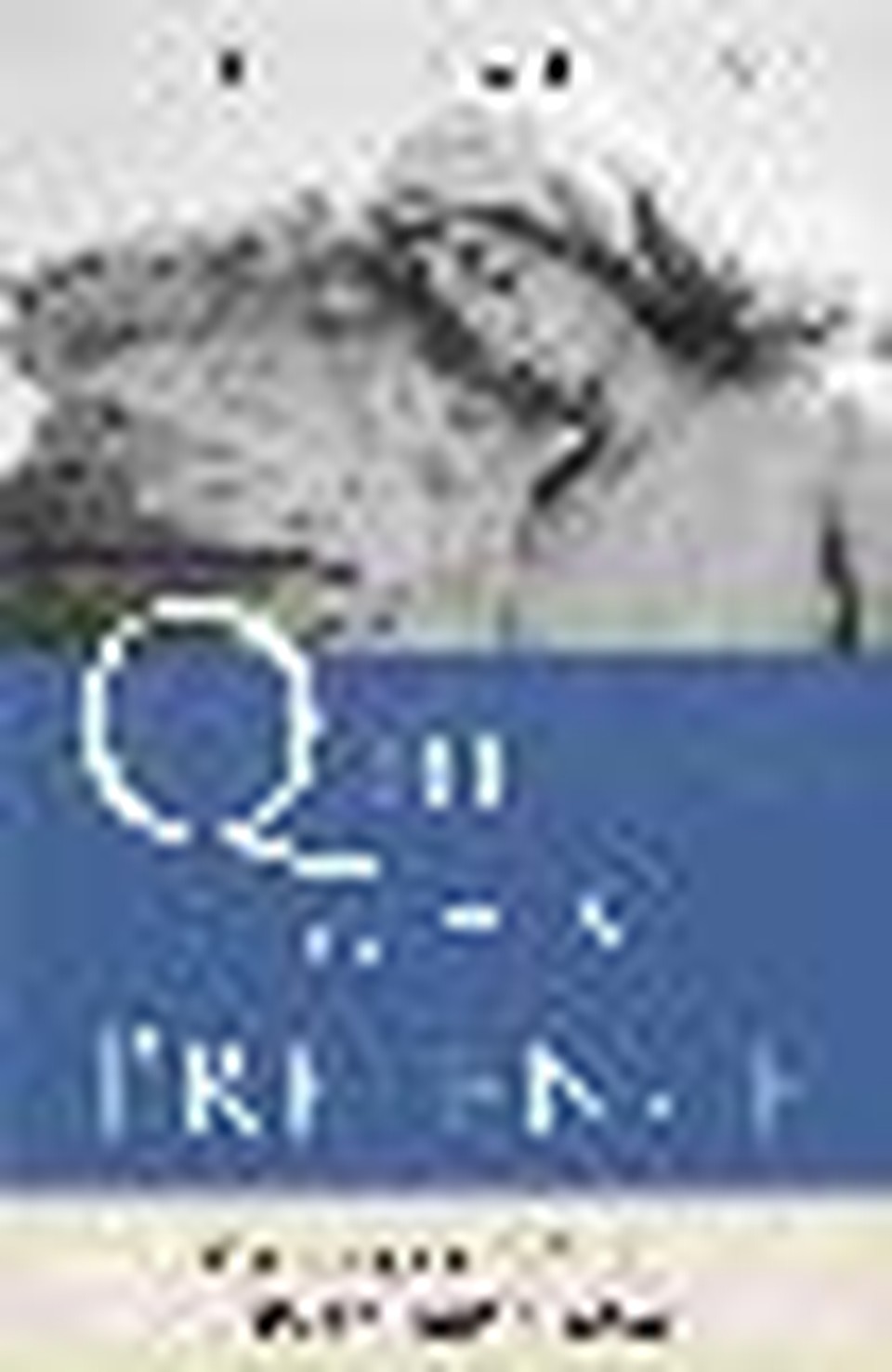The Cross & the Pen: A Conversation with Jan Harris

Welcome to "The Cross & the Pen," Crosswalk.com's newest author interview and book review column. It is my absolute pleasure to tell you about "Quiet in His Presence," (Baker Books) by Jan Harris. I have found a kindred spirit in Jan, a woman who draws from her experiences growing up on a sheep farm in being a member of the Good Shepherd's flock. Both Jan and I have come to a place in our spiritual journeys where we have grasped hold of a concept known as "contemplative prayer."
Catching up with Jan is no easy task-her life is full as a freelance editor, retreat speaker, gardener and friend. But when I did, I was delighted to "hear her voice," soft yet knowledgeable, full of tenderness for those who have yet to understand the joys of simply basking in the presence of God.
Eva: Jan, you share that you grew up the daughter of an Aussie sheep farmer. What are some of the things about the Good Shepherd you learned from watching your father?
Jan: Like Jesus, my dad was very gentle with his sheep. He had to be. Merinos panic easily, and if one panics, they'll all follow (anything one does, they will all do). And the chances are they'll die by smothering each other, or by running into a fence, or over a cliff. He had to watch over the sheep constantly to keep them out of danger. During lambing season, once the lambs were born, he had to patrol to protect the sheep from eagles and foxes. He had to watch their diet. He checked the paddocks for poisonous plants, and we had to cut them out, because the sheep would eat them and get sick. He had to protect the lambs from the rams (who would kill the newborns).
Eva: Your book, Quiet in His Presence, is focused on the act of contemplative prayer. What is contemplative prayer?
Jan: Contemplative prayer is silent prayer. And by silent I mean "without words or thinking." Some people call it meditation, and some contemplation. But I see meditation as discursive, and contemplation as non-discursive.
Most of the prayer we do is discursive -- we talk, or we think. When I say contemplative prayer I mean prayer in which we simply "be" -- setting aside all our words and our thoughts for a short time.
Eva: You write: "It is said that the average person has 60,000 thoughts a day." (I honestly think I could double that with the way my mind races!) How does one "stop the thoughts" long enough to focus on God?
Jan: We can't really "stop the thoughts," and we shouldn't even try. It's impossible, and it will only cause frustration to try. We don't pay attention to the thoughts. By this I mean that the less we focus on the thoughts, the less they will distract us.
You know that if you are living in a house with teenage kids, and they all have their music playing, or your neighbors are having a loud party late at night, the more you focus on how annoying the noise is, the more distracting it becomes. If you decide to not focus on it, before long you "forget" that it's there, because you are not letting it bother you.
That's what you do with those thoughts. You choose a "love word" -- a word that is a symbol for you of your intention to sit quietly with God. That word might simply be God, or Jesus, or love. You choose what feels right to you. Then, whenever you find that a thought has grabbed your attention, you simply say the word quietly to yourself, coming back to your intention to not be distracted.
Eva: At the retreats where I speak on prayer I talk about the difference in the worship of Mary of Bethany to that of her sister Martha. You express some of those same differences in your book. How do you compare their story to types of prayer?
Jan: I see Mary of Bethany as the one whose prayer is all grace. She knows that the Lord is looking at her with eyes of love -- and she's content to bask in that look. She returns it by gazing at the Lord, totally sure that she's forgiven, redeemed, loved and can simply "be."
We all have glimpses of this type of prayer.
Martha's prayer, on the other hand, is a prayer of asking the Lord to help her, and then clamoring for the Lord to notice her work.
We all pray this way at times. We all have times of insecurity. And sometimes we have to pray this way until we are "done praying" -- until we have said all we need to say, voiced all our doubts and our needs -- and then the Lord steps in and gives us the gift of faith to accept his grace.
Eva: You give four simple steps for making silent or contemplative prayer work. What are they?
Jan:
One -- We quiet our bodies, both within and without. We find a quiet place, sit comfortably with our backs straight, and close our eyes.
Two -- We turn within. We turn our attention to the Lord, giving ourselves to him as a gift. For the next few minutes we are all his. In faith we trust that he is here, present with us, accepting us, loving us.
Three -- We use our chosen "love word" whenever we find we have been distracted from our intention. When we find that we have been paying attention to or focusing on one of the myriad thoughts racing through our heads, we simply murmur our love word gently to ourselves, remembering that it is a symbol of our intention to quietly be with the
Lord.
Four -- At the end of the time, we gently repeat a favorite prayer to ourselves as we transition back into our busy, noisy world.
Eva: "Contemplative prayer," you say "gives way to a contemplative life." How is the latter different from the life of the average busy-bee Christian?
Jan: Contemplative prayer calms us. Because we are letting go of our control of our prayer during that time, this "letting go" begins to permeate every aspect of our lives. We are able to "be" more -- we find that it's easier to be quiet, when in the past a "smart answer" would have popped out of our mouth. We are more likely to expect the Lord to "lengthen the time" for us when we have a really busy day. We are much less likely to take out our frustrations on someone else -- and more likely to be the one who works through a problem.
Also, I find that it makes a difference in the setting of healthy boundaries, and in recognizing how much I can truthfully and faithfully be involved in. I am able to say "No" to some things so that I can give myself wholeheartedly to that which I feel I am called upon to do.
Eva: Going back to the 60,000 thoughts a day and factoring in the issues of busy-ness: You intimate that our need to "always be in a hurry" is uniquely connected to our need to "always be in control." Can you elaborate on this?
Jan: We live in culture that is all about "measurable results." Even our Protestant work ethic says that you can see the measure of a person's commitment to Christ by what they have -- how much money they make, how successful they are. Achieving measurable results usually is connected to managing our time, or money, or labor. So -- we are in control.
Contemplative prayer brings us face to face with the fact that we can't even control our own thoughts! We decide that we are going to sit in the Lord's presence for a mere ten or twenty minutes -- and at the end of the time we find that 90 percent of the time we blew it! We had been distracted from our intention while we thought about all sorts of things that just happened to be on our minds.
Eva: What happens when we yield that control to quiet time with God?
Jan: We see God. We see how loving and caring he is, despite our poor performance.
And we see ourselves. We see how pitiful and weak we are. But we also begin to see that God loves us anyway, just like the newborn -- who cannot perform at all -- who is so loved by his mother.
We reflect on God's great goodness, and our great weakness. We see his gift of life to us. His gift of forgiveness. And then we begin to realize that he has lifted us out of our "mess" and placed us in the midst of the loving circle of the Trinity. Our life "is hid with Christ in God" -- what a wonder that is! Out of that realization of his great love for us comes our desire then to show our love to his world.
Eva: Being quiet in His presence is something you have experienced for some time. What passion caused you to want to write the book now?
Jan: Realizing how much God loves us, and how hard it is for us to believe it is really true for us. My prayer is that everyone who reads my book will get a tiny glimpse of their belovedness, and will pursue a deeper relationship with God so that they experience his extravagant love for themselves.
Eva: If you could sit across from your reader, look them in the eye and say one thing--the one thing you want them to glean from your book-what would it be?
Jan: You are God's beloved. You are cherished. And the Lord is waiting for you to turn your gaze towards him so that he can let you know how precious you are.
Eva: Jan, would you close us with a very short prayer, asking the Lord to hear our hearts as well as our words?
Jan: Thank you, Lord, for loving us and seeing us as precious. Open our eyes so that we can see who you really are, and turn our hearts toward you so that we can give ourselves as a gift to you. Let us forget everything that distracts us from you, and give us the gift of simply being in your presence like Mary of Bethany was. And thank you Lord that you look at our hearts' intention. Amen.

Originally published April 15, 2003.





